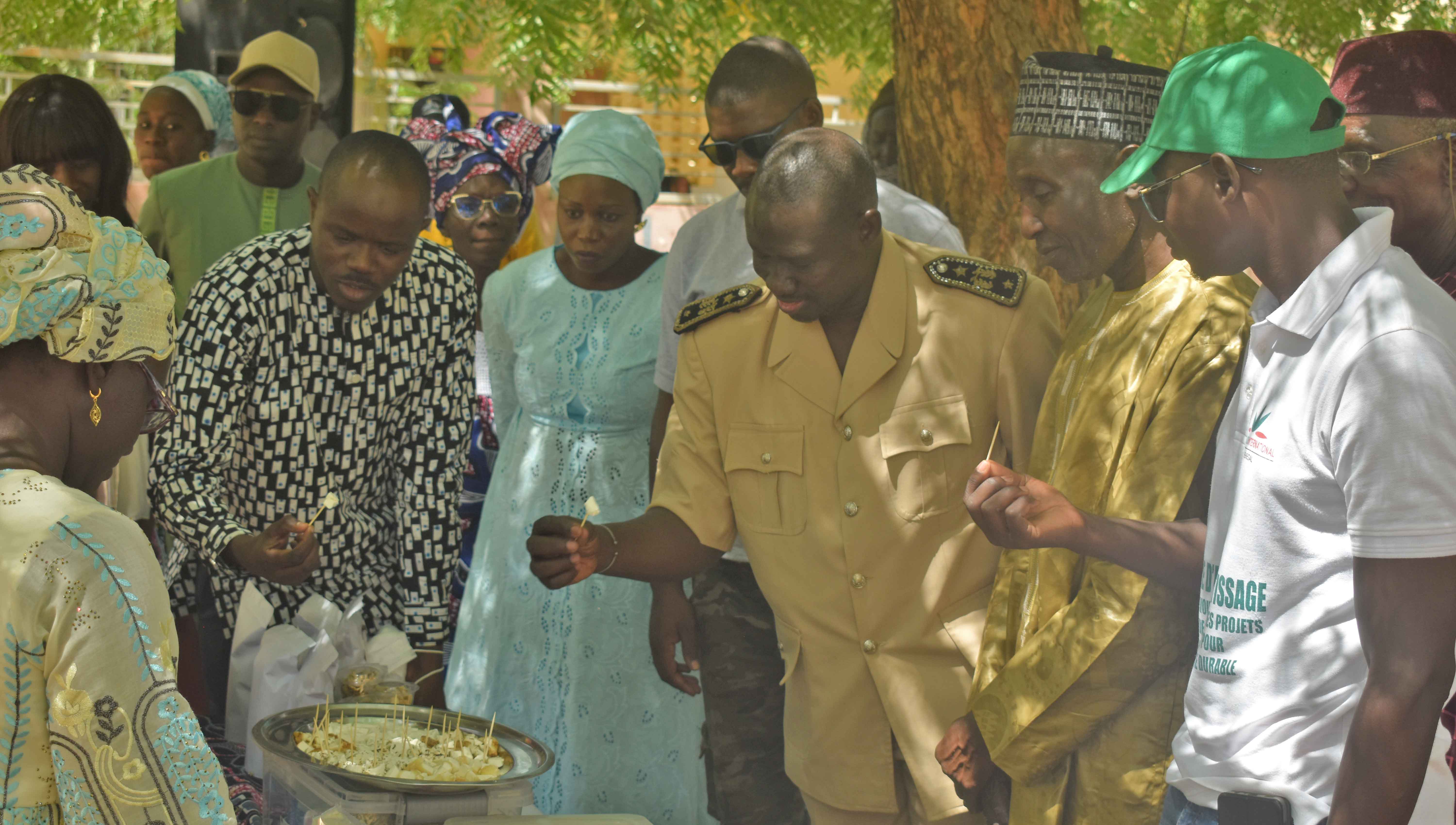-
Publié le : 01-08-2025
-
Type : Projet
In this department, in the heart of Senegal, a day of discussions and actions brought together livestock farmers, local authorities and partners around a common goal: to develop livestock farming practices and strengthen the sheep and goat sectors.
Organised by Agrisud International, RAGF* and NAIDP**, this event provided an opportunity to share concrete solutions, promote local expertise and lay the foundations for local consultation on more efficient livestock farming.
Concrete actions and local support
To meet the needs of livestock farmers, a network of 73 local ‘relay farmers’ has been set up, trained by technicians from the Departmental Livestock and Animal Production Service (DLAPS). This network provides technical and veterinary support.
During the regional livestock day, 15 of these relay farmers, together with the technical services, provided free veterinary consultations for 400 animals. This was an opportunity for them to demonstrate their skills and make themselves known, and for the technical services to disseminate advice.
Other support measures have been put in place to strengthen the activities of livestock farmers: provision of community veterinary kits, creation of stores to stock livestock feed, and development of agro-processing methods to add value to animal products such as goat milk and meat. This last component is based on training for livestock farmers and the establishment of production units, as part of the Goat Sector Improvement Project (GSIP) operated by RAGF.
Among the day's activities, an exhibition of processed products (cheese, yoghurt, soap) provided a concrete illustration of the potential for adding value to goat's milk. These stands also encouraged the exchange of practices.

Strong local mobilisation
160 professionals participated in discussions and information sessions on the challenges facing the sectors. The strong mobilisation of local authorities and civil society during this event demonstrates the importance of the sector for the local economy.
The various speakers emphasised the importance of structuring the sheep and goat sectors to make them a lever for development.
The deputy sub-prefect of Diakhao, Cheikhou Cissé, highlighted the strategic role of livestock farming in the local and national economy. He emphasised the need to strengthen the competitiveness of the sectors through training, technical support and local assistance.
In terms of technical services, the head of the DLAPS in Fatick pointed out that animal products play a crucial role in the region's food supply, while highlighting the persistent difficulties in processing, marketing and market access.
The mayor of Mbellacadio, Niokhor Diaz Ndour, welcomed the initiatives led by Agrisud while calling for greater commitment from local stakeholders to support small-scale livestock farmers. He also highlighted additional needs, such as the development of livestock passageways, which are essential for pastoral mobility in his municipality.
Lastly, Hélène Kuhn, GSIP project manager, reaffirmed the importance of supporting women livestock farmers through appropriate savings and credit schemes, enabling them to invest sustainably in livestock farming and turn it into a real source of income. She invited the mayor and sub-prefect to support these initiatives.

A collective dynamic to be pursued
This day laid the foundations for constructive local consultation and strengthened the collective dynamic around the sheep and goat sectors. It also sent a strong message: that of sustainable livestock farming, serving Senegal's food sovereignty.
--
Insert
Since 2014, Agrisud International has been implementing the Agricultural Production Revitalisation Project (APRP)) as part of the AGRITER programme co-financed by Agence française de développement. It aims to strengthen the momentum generated by local actors in order to promote sustainable family farming in the Diourbel and Fatick regions.
This day of mobilisation in support of the sheep and goat sectors is part of the PRPA's activities, which support local initiatives in agroecology and the structuring of agricultural sectors.
Some key figures for the project:
- 7 territories supported in their agroecological transition
- More than 1,800 family farms supported in improving their agricultural and para-agricultural activities
- 27 farmers' organisations supported
--
*Regional association of goat farmers
**National Association of Integrated Development Programmes


